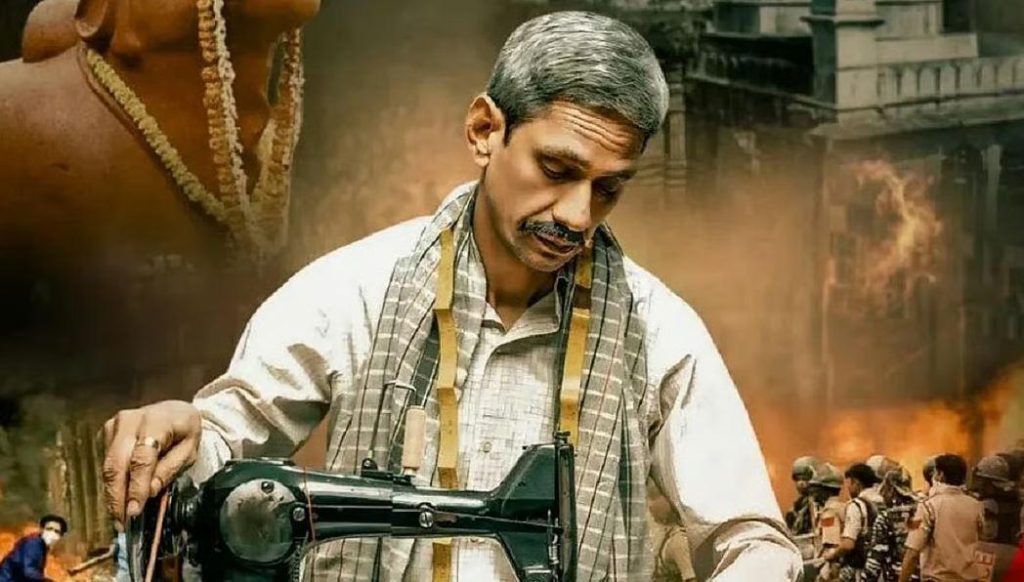
Petition filed with the Ministry of I&B to ban Udaipur Files
The Indian film industry has been abuzz with the latest controversy surrounding the upcoming film, Udaipur Files, starring Vijay Raaz. The film’s plot is shrouded in mystery, but the controversy surrounding it has sparked heated debates and discussions. In a shocking turn of events, the President of Jamiat Ulama-i-Hind, Arshad Madani, has taken to social media to inform everyone that a petition has been filed with the Ministry of Information and Broadcasting to ban the release of the film.
On Tuesday, Madani tweeted, “The petition states that the film is based on hatred, may promote communal tension in society.” This bold move has sent shockwaves across the film industry, with many questioning the motives behind the petition. But what exactly is the controversy surrounding Udaipur Files, and why has the Jamiat Ulama-i-Hind taken such drastic measures?
For those who may not be aware, Udaipur Files is an upcoming Indian drama film directed by Vijay Raaz, who is also starring in the lead role. The film’s plot is shrouded in mystery, with very little information available about the story or the themes that it explores. However, the film’s trailer has sparked curiosity among audiences, with many praising Raaz’s acting skills and the film’s unique storyline.
But despite the buzz surrounding the film, the Jamiat Ulama-i-Hind has taken issue with the film’s content, citing concerns that it may promote communal tension in society. In a statement released on Tuesday, Madani emphasized the importance of promoting harmony and unity in society, stating that films like Udaipur Files could have devastating consequences for the country’s social fabric.
Madani’s concerns are not unfounded. In recent years, India has seen a rise in communal tensions and hate crimes, with many blaming Bollywood films for perpetuating harmful stereotypes and stoking divisions. The Jamiat Ulama-i-Hind, a prominent Muslim organization, has been vocal in its criticism of Bollywood films that it perceives as promoting communal hatred.
But is the petition a knee-jerk reaction, or is there substance to the Jamiat Ulama-i-Hind’s concerns? To understand the controversy surrounding Udaipur Files, it’s essential to look at the film’s plot and themes.
According to reports, Udaipur Files is a drama that explores the lives of several individuals from different walks of life, each with their own struggles and challenges. The film’s trailer suggests that it will tackle themes such as love, loss, and redemption, with a unique blend of drama and social commentary.
However, some critics have accused the film of perpetuating harmful stereotypes and stoking divisions. The film’s trailer has been criticized for its depiction of Muslims, with some accusing it of perpetuating negative stereotypes and reinforcing harmful tropes.
The controversy surrounding Udaipur Files is just the latest in a long line of debates about the role of Bollywood films in promoting communal harmony. In recent years, several films have been accused of perpetuating harmful stereotypes and stoking divisions, with many calling for greater regulation and accountability in the film industry.
In this context, the petition filed by the Jamiat Ulama-i-Hind is not surprising. The organization has a long history of advocating for greater sensitivity and awareness in Bollywood films, and its concerns about Udaipur Files are likely driven by a desire to promote greater understanding and harmony in society.
But what does this mean for the future of Indian cinema? Will the petition have a chilling effect on filmmakers, stifling creativity and innovation in the process? Or will it lead to greater self-regulation and accountability in the industry?
Only time will tell. But one thing is certain: the controversy surrounding Udaipur Files is a stark reminder of the power of film to shape public opinion and influence society. As Indian cinema continues to evolve and grow, it’s essential that filmmakers, policymakers, and audiences alike prioritize the importance of promoting harmony and unity in society.






